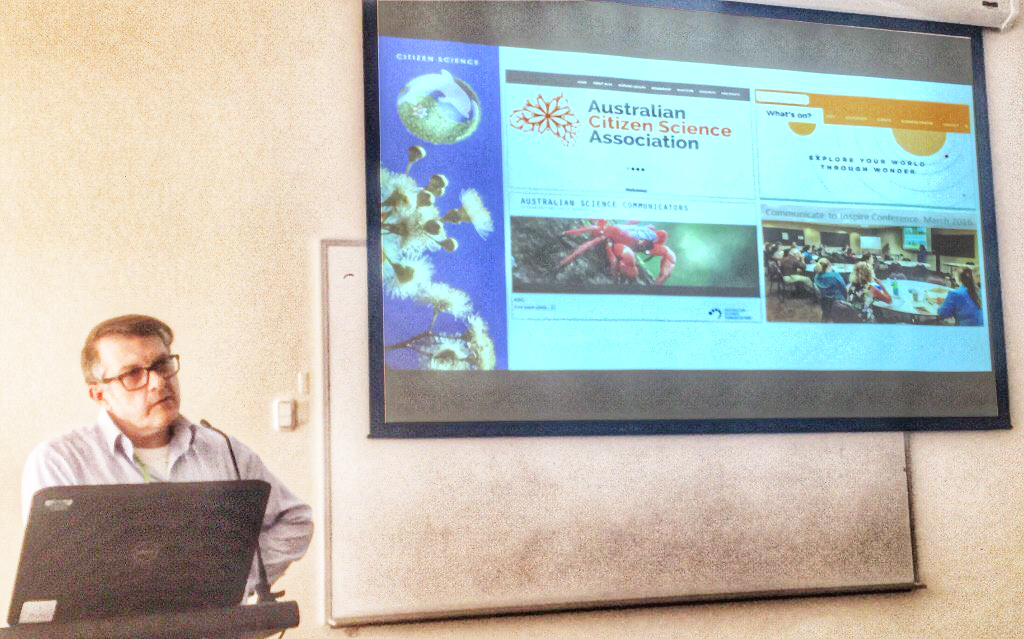I recently got the opportunity to present at the third Atlas of Living Australia (ALA) Science Symposium, held at the Kieran MacNamara Conservation Centre here in Perth.
 Alex presenting at the ALA Science Symposium
Alex presenting at the ALA Science Symposium
As the symposium was held during National Volunteer Week my presentation ALA and Citizen Science in WA began with a review of some of the significant data contributions made over twenty years by volunteers at the WA Herbarium. This included work towards incorporating and databasing new plant specimens and producing digital images for some 50% of the vascular flora of WA, all now visible in the Atlas of Living Australia portal.
I also briefly presented a range of current WA-based citizen science projects to the audience, which covered a range of enabling technologies, such as:
- smartphone apps for data capture (e.g. Dolphin Watch and Microblitz),
- paper-based survey forms with subsequent data display of results (eg. Rakali Survey and Quenda Counts displayed via DPaW’s NatureMap, and
- Crowd-sourced fauna observations (g. Western Shield camera trap identifications via Zooniverse).
Of particular interest to the citizen science community present was the online toolset demonstrated by the ALA team called BioCollect.
BioCollect provides form-based structured data collection for ad-hoc survey-based records; method-based systematic structured surveys; and activity-based projects for natural resource management. The system integrates with Atlas tools such as taxon names services and related national facilities such as the Terrestrial Ecosystem Research Network (TERN) and the Australian National Data Service (ANDS).
Gaia Resources and the ALA have had a long relationship, with Piers being the citizen science team lead at the ALA for a number of years. Recently, we’ve rekindled this relationship and tools like BioCollect give us additional ways to support and assist citizen science in Australia. For new citizen science projects – especially those with a minimal funding base – BioCollect provides the opportunity to develop a project presence and a data framework for simple project data capture, and Gaia Resources can assist you in getting started with these tools.
Once the proof of concept in BioCollect has been road-tested, momentum gathered and further funding secured, more sophisticated tools can be developed for the project – and this is where Gaia Resources can help as well, as we’ve done for many of our clients. We can help to develop more specific citizen science solutions for groups that then need more than BioCollect can provide.
The BioCollect tool adds to our ability to assist Citizen Science projects around Australia. So, if you are interested in how we can help you, contact me directly, or start a conversation with us on social media via Facebook, Twitter or LinkedIn.
Alex

Comments are closed.